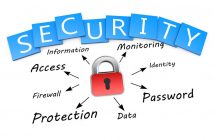VPNs are something it’s worth knowing about, especially since governments are keen to add more and more regulation to what you can do online (just think, SOPA almost passed, and that would have been a major restriction for US internet users).
To put it simply, VPNs are servers located all around the world, and you can connect to the internet via these, therefore it appears that you are from that country (i.e. you can hide your IP address, which identifies you when online). There are quite a lot of companies offering this service (big and major companies number 100-150), some of them have over 350 servers in over 50 countries, so you can “appear†to be in over 50 countries of your choice.
Why do this?
This type of service is not just for criminals. In fact with the amount of users that use them, obviously ordinary citizens want to do this too. Why? Well, either you are just paranoid and don’t want people knowing what you look at online, or occasionally you might download a film, in that case VPNs can hide your identity.
It can also be useful if you want to access certain video sharing sites that restrict by IP address. For example, Netflix, Hulu, BBC iPlayer, things like this cannot be watched from abroad. Using a VPN can let you watch this. For example many people in the US watched the olympics via a VPN, as the US broadcaster didn’t play live games quite often, only later in the evenings US times. Crazy isn’t it!
What can I use it on?
Many people think VPNs are just for desktop PCs, but in fact today you can use a VPN for pretty much everything, including your phone (android, iOS, whatever), or tablet, everything. Since most VPN services offer encryption, you can use VPNs to encrypt the data being transmitted by your phone too.
Who are the major players?
The biggest brands for VPNs are HideMyAss, PureVPN and StrongVPN. But there are many others, some companies have standalone torrent services. There’s a nice price comparison and review site at BestVPN.com.
What’s in the fine print? What’s the catch?
If you really want to hide your identity, you need to use a VPN in a country that doesn’t have strong government regulations. For example, HideMyAss is in the UK, and StrongVPN is in the US, both of these probably record what you are doing online as the government requires them to do this. There’s only been one case where the government has wanted data from HideMyAss and that was for a major crime, so it does not happen often. Judging by the popularity of HideMyAss, it does work just fine.




